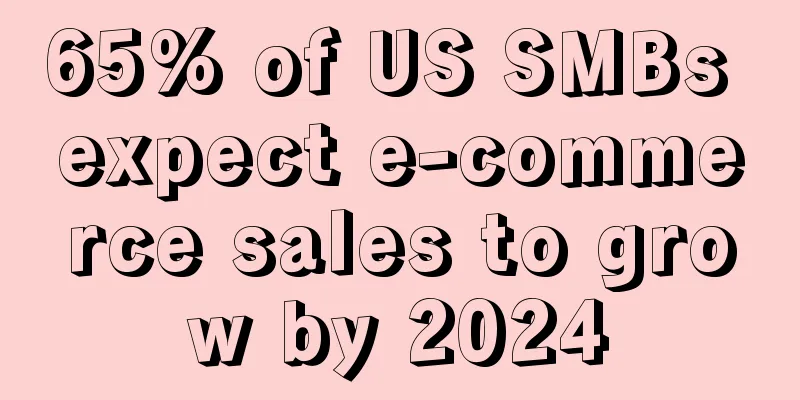Amazon and Etsy are unhappy with sellers for delayed payments! Amazon: We are changing it.

|
Amazon and Etsy have softened their stance on the policy of delaying payment for sales after thousands of sellers complained that the new rules could put them out of business. As the world's two largest online retail giants, Amazon and Etsy have millions of small sellers. As many sellers complain that delayed payment may lead to serious consequences, the delayed payment policies introduced by these two platforms have caused dissatisfaction among buyers. Small sellers who sell on Amazon or Etsy are most vulnerable to the new policy as they grapple with how to finance operating costs within limited funds. Last month, Simply Business’ SME Insights Report found that 1.5 million UK entrepreneurs were considering using personal savings to prop up their businesses in the face of rapidly dwindling cash reserves . Amazon and Etsy’s reserve system policiesEtsy first introduced the reserve fund policy in 2021. The policy allows the platform to withhold up to 75% of a merchant's sales revenue for up to 90 days. Etsy said this is to ensure that sellers have enough funds in the bank to cover potential customer returns and claims. Meanwhile, Amazon's policy update in May enabled the e-commerce giant to withhold up to £5,000 from sellers for up to a week after the estimated delivery date. Seller's complaintBoth platforms gave affected sellers three months’ notice of the delayed payments policy, but Connor Campbell, a business finance expert at NerdWallet, said the warning was “too soon for them to take any countermeasures to protect their funds.” “Sellers rely on a steady stream of revenue to manage their operations and pay their employees ,” Campbell added. Affected business owners complained about how the reserve system affected them in the Etsy Seller Support Community Facebook group. Some sellers said they are now struggling to pay their bills after their sales were delayed, and some even said they have lost confidence in Amazon after spending hours discussing with chatbots why their funds were withheld. After a backlash on social media, Etsy reversed its policy last week, saying it would "significantly reduce" the amount of money sellers could reserve. This week, Amazon also softened its stance after similar incidents, confirming that it would return part of the sales revenue to sellers. However, financial expert Connor Campbell believes that both platforms should completely cancel the policy. "If this policy is not overturned, it is likely to result in many sellers having to cease operations as they can no longer rely on sales revenue to cover operating costs," he said. Experts: Late payments may put small and medium-sized sellers in troubleThe reserve system has been in place for years. However, both Etsy and Amazon have tightened their policies in the past few months, resulting in significant payment delays and cash flow disruptions for small and medium-sized sellers at a time when their finances are already strained. Supply chain issues are exacerbating the problem. Manufacturers and suppliers are struggling to cover the rising costs of doing business as inflation hits partners end-to-end, which is causing small and medium-sized sellers to take longer to receive sales payments. Barclays told Startups that large companies like Etsy and Amazon may have good reasons to hold onto cash reserves, but simply don’t realize the severe adverse impact this could have on small businesses. “We are trying to get their big customers to understand the small sellers better and make them aware that a one-week delay in paying a small business £100 could even put a small seller out of business,” she explained. Barclays said that while late payment issues have plagued small sellers for decades, there are steps that small and medium-sized sellers can take to strengthen their balance sheets to cope with the adverse effects. Barclays has provided advice to startups, recommending that small and medium-sized sellers invest in the best invoicing and cash flow management systems to avoid spending valuable time tracking payments through the supply chain. Editor ✎Estella/ Disclaimer: This article is copyrighted and may not be reproduced without permission. |
<<: The “latecomer” has overtaken others, can Wish make a comeback?
Recommend
What! After Europe collects advertising tax, the US will also follow suit! ?
Cross-border Business School Information and skil...
The most comprehensive inventory of affiliate marketing platforms in history
<span data-shimo-docs="[[20,"说到亚马逊站外引流,就不得...
What is Webpower? Webpower Review
Webpower is an email marketing tool that provides ...
What is VE? VE Review
VE (Amazon Vendor Express), sellers sell products ...
UK VAT registration address exposed! Affecting tens of thousands of Chinese companies!
How much sorrow can one have? Just like the strict...
What is Blackbird Suite? Blackbird Suite Review
BlackBird has a full set of technology and trainin...
What is Outdoor Voices? Outdoor Voices Review
Outdoor Voices was founded in 2013 and is an Ameri...
The second-hand e-commerce market in the United States is booming! Three major categories will support the market in the future
It is learned that recently, FloorFound released t...
Behind the Amazon Prime Day hits, here are 3 tricks of the operators!
This is my 735th day in e-commerce operations: Loo...
What is iPayLinks? iPayLinks Review
iPayLinks is a cross-border payment technology com...
What is LianLian Pay? LianLian Pay Review
Lianlian Pay, a global third-party financial servi...
What is LifestyleMirror? LifestyleMirror Review
LifestyleMirror is a website that uses a network p...
What is Xiamen Sulaimei Supply Chain Co., Ltd.? Xiamen Sulaimei Supply Chain Co., Ltd. Review
Xiamen Sulaimei Supply Chain Co., Ltd. is a one-st...
The United States plans to cancel tariff exemptions for Chinese goods! Shein and Temu may be hit again
According to foreign media reports, a bipartisan g...
Big change: Amazon payments are going to be “overdue”
In October 2024, Amazon underwent a major change -...









